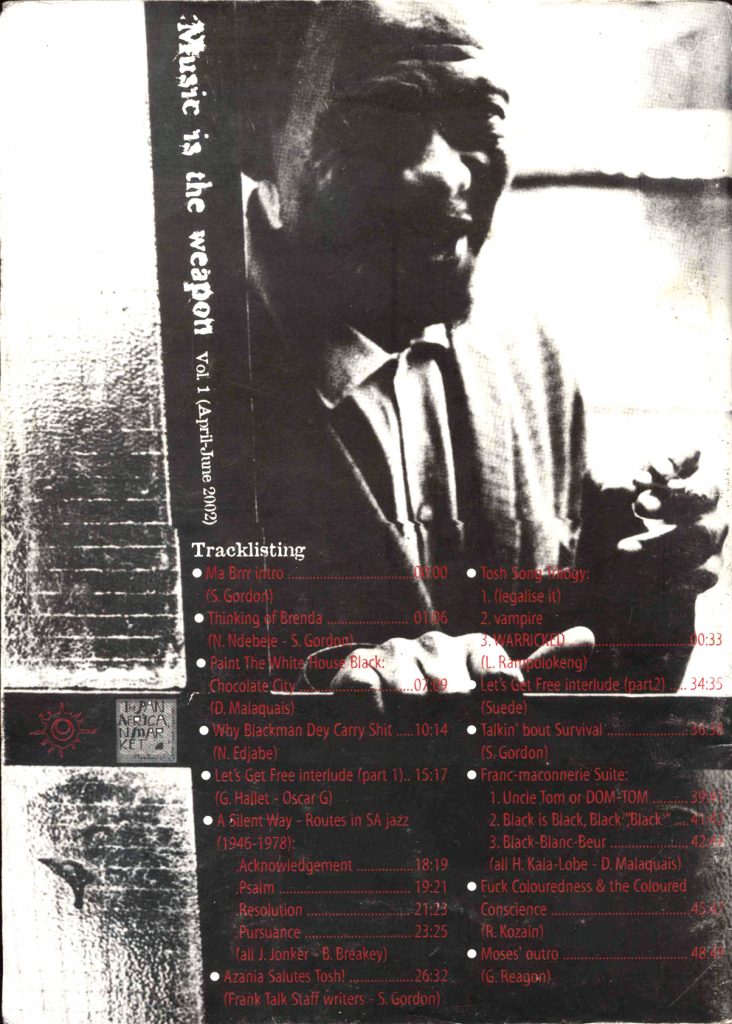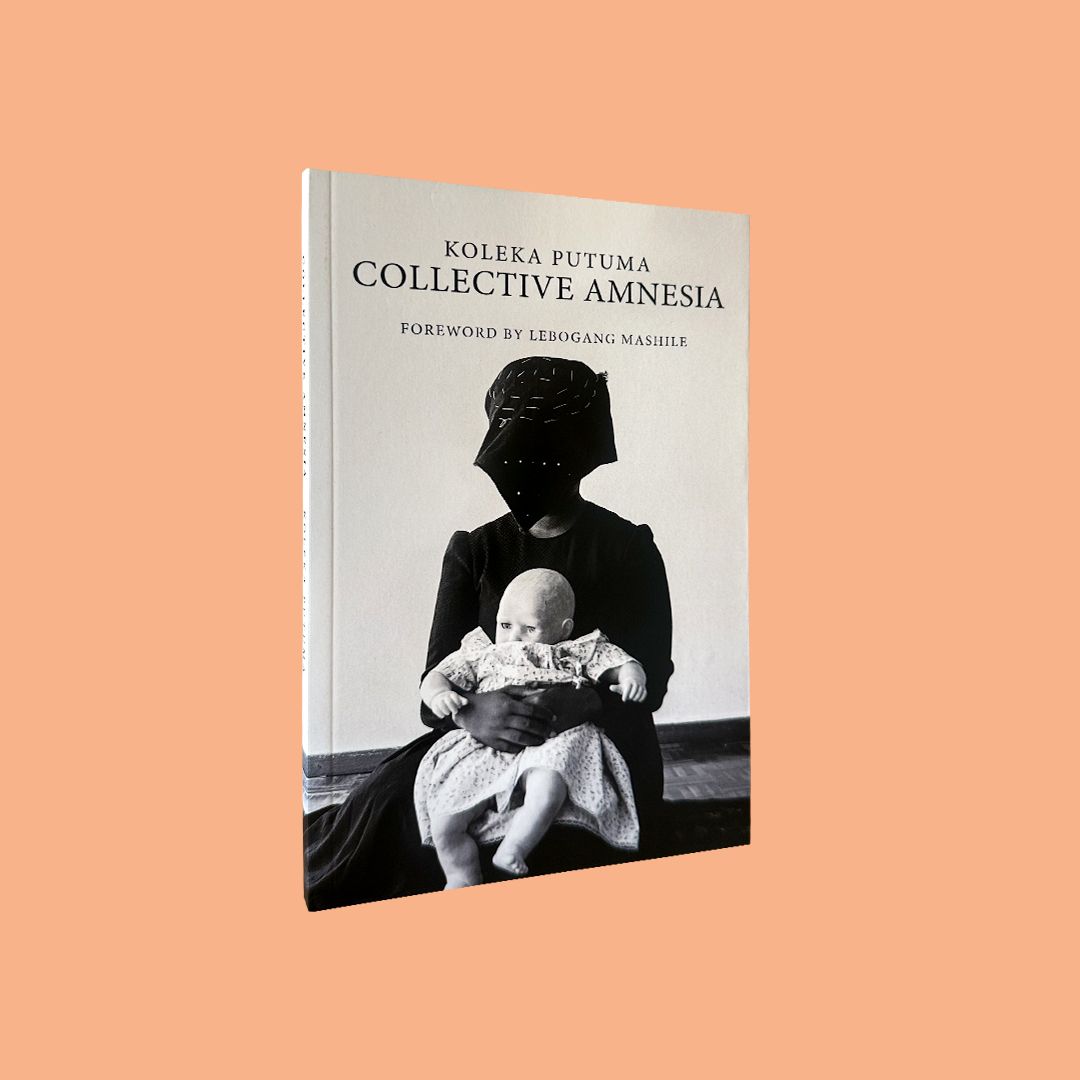“…The struggle of black people inevitably appear in an intensely cultural form because the social formation in which their distinct political traditions are now manifest has constructed the arena of politics on ground overshadowed by centuries of metropolitan capitalist development, thereby denying them recognition as legitimate politics. Blacks conduct a class struggle in and through race. The BC of race and class cannot be empirically separated, the class character of black struggles is not a result of the fact that blacks are predominantly proletarian, thought this is true…”- (Frank Talk Staff Writers in ‘Azania Salutes Tosh’ – circa 1981)

front cover:
Tosh by Steve Gordon
back cover:
Kippie by Basil Breakey
Collective Amnesia by Koleka Putuma (Manyano Media, 2017)
Collective Amnesia by Koleka Putuma (Manyano Media, 2017)
This highly-anticipated debut collection from one of the South African’s most acclaimed young voices marks a massive shift in the country's poetry. Koleka Putuma’s exploration of blackness, womxnhood and history in Collective Amnesia is fearless and unwavering. Her incendiary poems demand justice, insist on visibility and offer healing. In them, Putuma explodes the idea of authority in various spaces – academia, religion, politics, relationships – to ask what has been learnt and what must be unlearnt. Through grief and memory, pain and joy, sex and self-care, Collective Amnesia is a powerful appraisal, reminder and revelation of all that has been forgotten and ignored, both in South African society, and within ourselves.
Koleka Putuma was born in Port Elizabeth in 1993. An award-winning performance poet, facilitator and theatre-maker, her plays include UHM and Mbuzeni, as well as two two plays for children, Ekhaya and Scoop. Her work has travelled around the world, with her poetry garnering her national prizes, such as the 2014 National Poetry Slam Championship and the 2016 PEN South Africa Student Writing Prize.
Second Edition published by Manyano Media in November 2020. Foreword by Lebogang Mashile.

